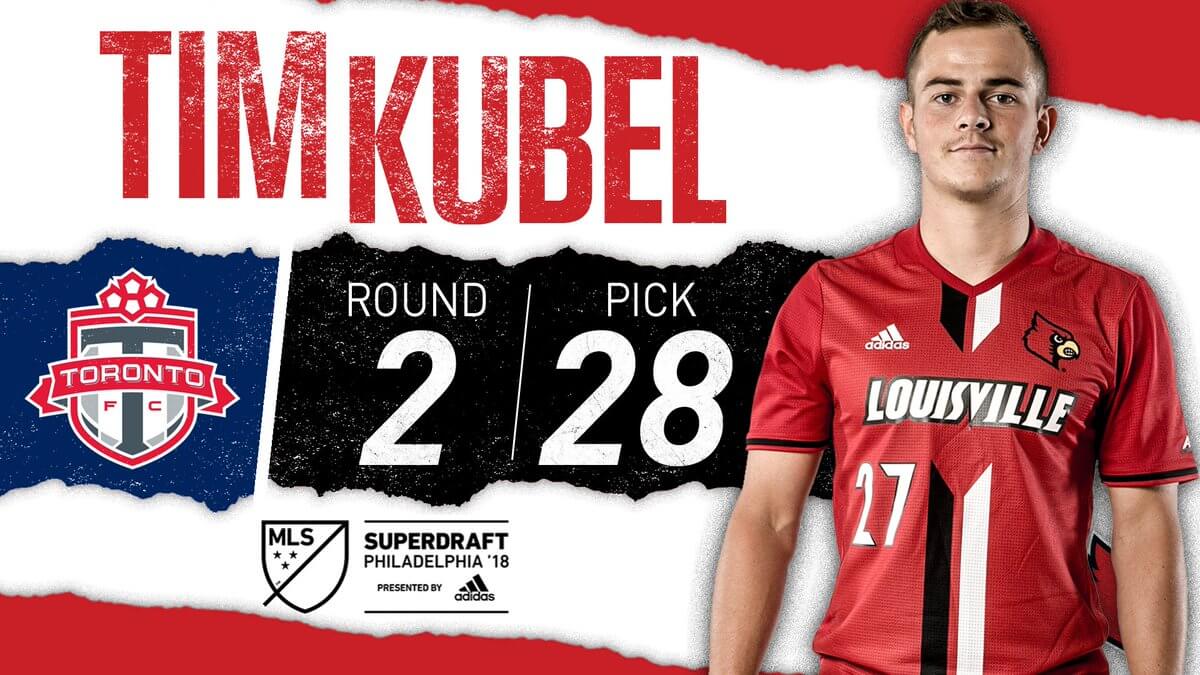The path to becoming a better player isn’t a straightforward one. Today, we’re going to dive into one Tim Kubel’s journey, who has pretty much seen it all, from the German Bundesliga academy with teams like Borussia Dortmund to the NCAA D1 powerhouse, Louisville, to the MLS draft, to Toronto FC. Then he transitioned into coaching at the top university, North Carolina Tar Heels in the NCAA Division 1, and pursuing a PhD at Premier League Top Club, FC Chelsea London. Let’s explore how Tim’s journey could potentially inspire and guide you, and what key takeaways you can use and apply for your own career!
Table of Contents
Best ways to improve and get to the next level
Seek Guidance from the Successful
Identify people who have made it to the level where you want to go. Reach out to them, converse, understand their journey. How did they get to where they are today? Learn from them and design your roadmap.
Abundance of Information
In today’s world, there’s no shortage of advice on what to do and what not to do to reach the next level. Find those resources and mentors who resonate with you and feel like you can implement their wisdom in your life. Then pursue your goals and be relentless every single day!
The Power of Consistency
Consistency is the key. Sure, you can achieve something in a week, but true success comes to those who are consistent. Like putting in extra work week after week, year after year. At some point, this dedication pays off. Trust the process; that’s what it all comes down to.
Trust the Process
Make a plan and commit to it. Remember, the fruit is the last thing that grows on a tree. Don’t compare yourself to others; instead, focus on your own progress. Define your extra work hours per week, commit to them, and results will eventually follow. The path to the top level involves multiple aspects, from technical skills to mental toughness.
Self-Reflection
Self-reflection is paramount. Be brutally honest with yourself about what goes well and what doesn’t. Most of the elite players can do this, and it’s an essential quality to possess. It’s not always pleasant, especially when seeking feedback from a coach, but how you handle that feedback distinguishes the elite from the average.
Conclusion
What does it take to reach the top? Technical prowess, tactical understanding, physical capability, game mentality, handling pressure – it’s a complex combination. But above all, self-reflection and honesty with oneself stand out. Seek guidance, learn from the best, be consistent, and trust the process. These principles don’t just apply to sports; they are a recipe for success in life’s bigger game.
What training helps to improve the most as a player
Passion and Joy
The conversation about becoming a better player often starts with technical skills, but it should start with joy. After all, passion and joy are at the core of why we begin playing in the first place. They are what make us invest time and effort into the game. According to Tim Kübel, it was the “factor of joy” that contributed significantly to his growth, especially in the early stages of his career.
Training Regime
A common misconception is that formal training is the only way to improve. Kübel’s story disproves this. His fond memories of “18-yard shooting” with friends aren’t just pleasant nostalgia, they played a critical role in his development as a player. The informal practice with friends was, in fact, the foundation of his exceptional shooting technique.
Mental Strength
However, becoming a better player isn’t solely about physical skills. It’s also about mental strength. Kübel points out that the psychological aspects of training are often overlooked by coaches. Yet, the ability to manage thoughts, emotions, and pressures can be game-changing, literally and metaphorically.
Pressure
Pressure is inevitable, especially as you progress in your career. Yet, how we respond to this pressure can make all the difference. Kübel admits that he allowed the pressure to affect his performance at times. Learning to deal with pressure is a key skill in not just sports, but in all aspects of life.
Real-life Skills
Skills honed on the field often transcend it. The psychological strength Kübel emphasizes doesn’t stop at managing on-field pressures; it extends to exams, conversations, and life in general. Thus, sports training can serve as an arena for developing broader life skills.
Overcoming Challenges
Challenges are a given in any journey. The way to success often involves understanding and overcoming them. For Kübel, integrating psychological training into his regime was one such challenge, but also a key aspect of his development.
Breathwork
One technique Kübel found beneficial was breathwork, a tool for maintaining focus. It helped him manage intrusive thoughts during high-pressure moments. Breathwork is an example of a transferable skill, beneficial both on and off the field.
Training and Life
In the end, the interplay between training and life skills is apparent in Kübel’s story. The joy of playing, informal practice, psychological strength, dealing with pressure, and mastering techniques like breathwork – these all shaped his journey. And they might shape yours too.
Conclusion
So, what aspects of training help you improve as a player? It seems to be a blend of passion, informal practice, mental resilience, and the ability to manage pressure. These skills, once honed, not only make you a better player but also equip you for life’s bigger game.
Low moments and how to get out of them
Lowest Moments
Becoming a better player isn’t just about the highs. It’s about how you handle and grow from the lows. Setbacks are inevitable in any career, and it’s no different in sports. As Kübel reveals, the journey is riddled with “road bumps,” but they are essential components of personal and professional growth.
Defining Situations
One of Kübel’s lowest moments came when, after being drafted by Toronto FC, he faced intense competition from a more experienced player named Gregory van der Wiel. The key, according to Kübel, was to understand that such situations do not define him.
Changeability
Knowing what can be changed and what can’t is crucial. Kübel recognized that he couldn’t alter the team’s selection or certain rules, but he could adjust his response and actions to the situation.
Opportunities
Rather than withdrawing, Kübel sought other opportunities. This adaptive approach to situations signifies that we are not merely subjects to circumstances, but active participants who can create our own paths.
Physical Fitness
A broken foot could be seen as another setback, but Kübel turned it into an opportunity to focus on physical fitness. This shift in focus demonstrates resilience and adaptability, even though he acknowledges in hindsight that it might not have been the best decision.
Control and Focus
An important theme in Kübel’s journey is the emphasis on focusing on what one can control. During his toughest moments, he realized that focusing on changeable factors was a significant part of navigating the situation.
Conclusion
The lows in a player’s journey are as important as the highs. They provide opportunities for personal growth and teach resilience, adaptability, and focus.

I am a German native based in the USA. As a former Bundesliga academy player in Germany and an NCAA soccer player at Hofstra University in New York and CSU in Los Angeles on a full scholarship, I have experienced the pros and cons of both cultures. Soccer/Football has changed my life in so many positive ways, and I am dedicated to sharing my experience with the next generation of players.





